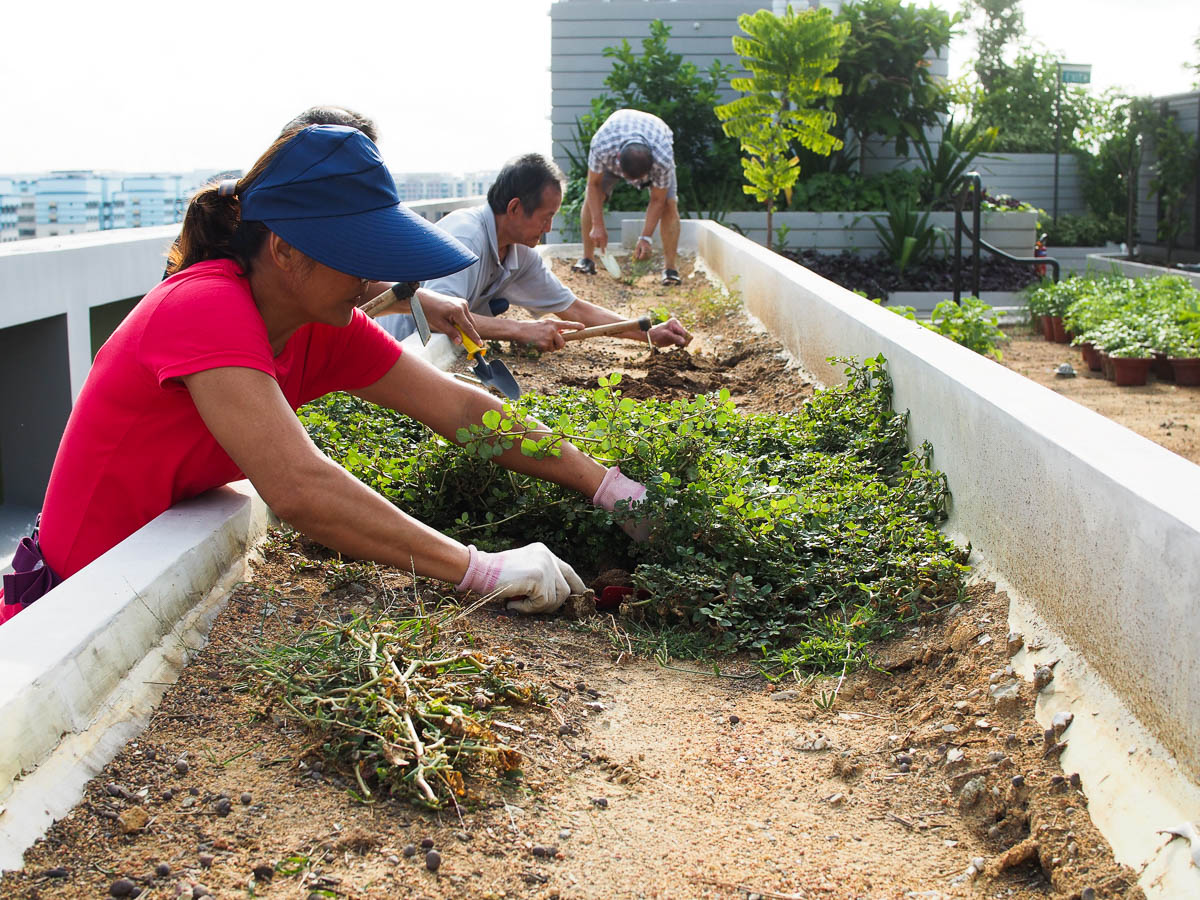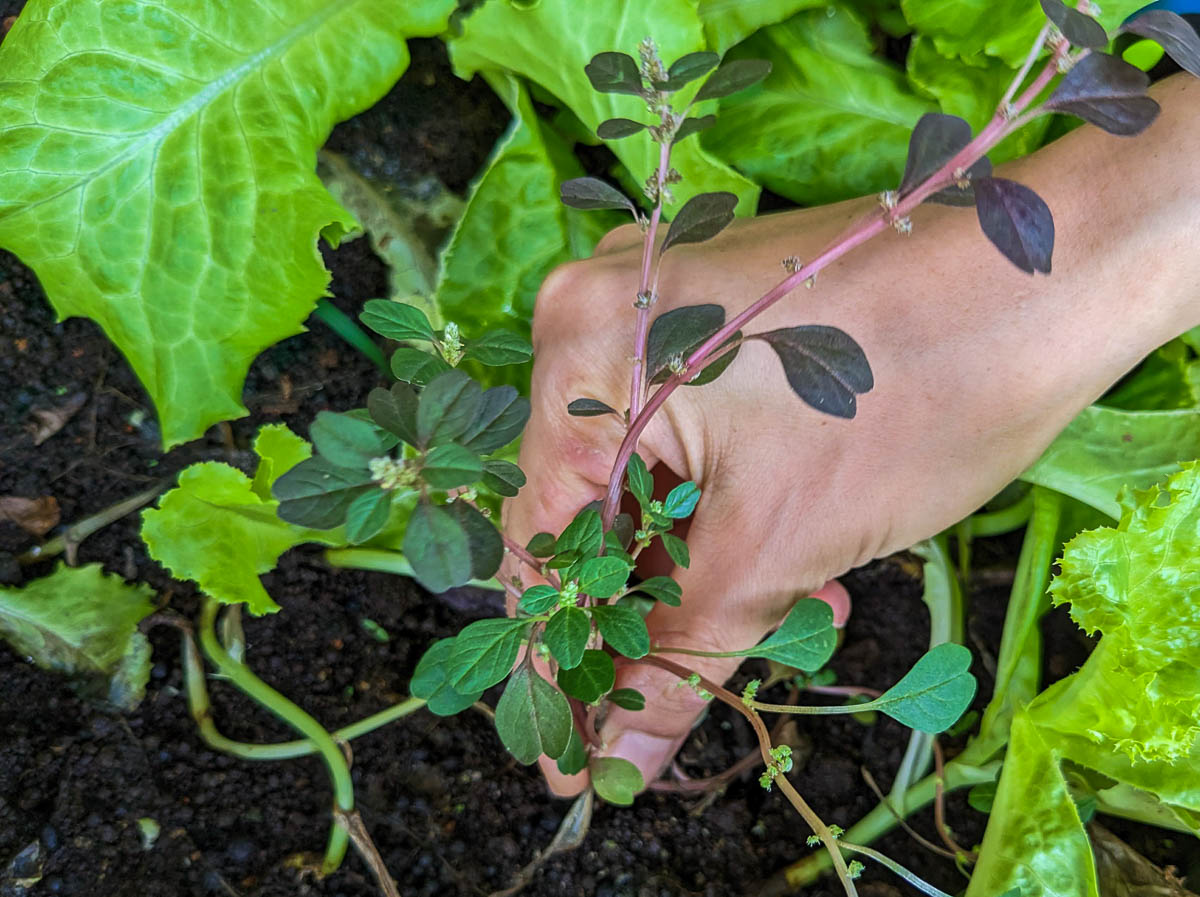Weeding

Weeding is a key part of plant maintenance as weeds can quickly overwhelm your own plants and crowd them out. Weeding effectively and consistently will keep your garden neat and manageable in the long run.
What is a weed and how do they affect your plants?
.jpg)
Any plant that you do not want in a particular spot can be considered a weed. They are undesirable when they grow and spread faster than your selected plants and can overwhelm weak or sick plants rapidly.
How to weed

Weed control should be done early and regularly, especially if you have exposed soil or young plants. Try to remove as much of the weed as possible, as many can grow back from small pieces of stem or roots left behind.
Most weeds can be gently pulled out by the base to remove the entire plant, including the roots. Persistent or deeply rooted weeds can be pulled with a gardening fork or a spade. Use a pair of gloves to protect yourself from thorns, stones and sap.
You can also use mulch to kill and suppress weeds. Mulch will deprive weeds and their seedlings of light, thus killing them.
Avoid using broad-spectrum herbicides as they are harmful for the environment.

